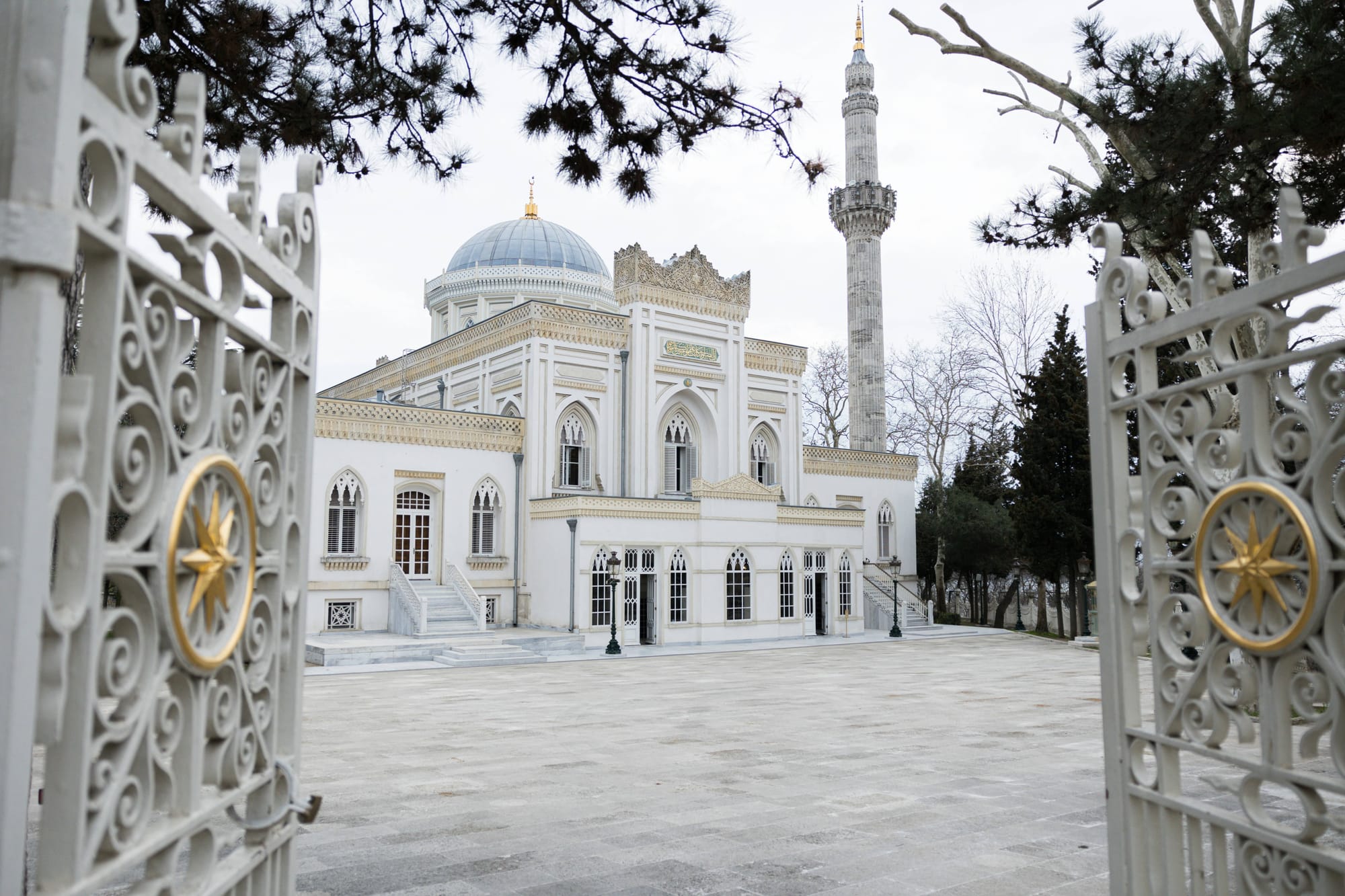This is your comprehensive guide to obtaining Turkish citizenship through investment.
Ever dreamed of standing at the crossroads of East and West, experiencing rich cultural heritage while accessing over 110 global destinations without the hassle of visas?
Imagine doing all that while enjoying the perks of citizenship in one of the world's most strategically positioned nations!
Welcome to Turkey, where ancient meets modern, where your dreams of global mobility, strategic business opportunities, and a vibrant lifestyle can become reality. From the bustling streets of Istanbul to the serene Mediterranean coast, Turkey offers an unparalleled blend of opportunity and culture for foreign investors.
Dive into our comprehensive guide on the Turkish Citizenship by Investment Program and discover how you can transform your investment into a gateway between continents!

Overview of Turkey Citizenship by Investment Program
Historical Background and Legal Framework
Turkey's Citizenship by Investment Program has evolved significantly since its inception, reflecting the country's growing position as a global investment destination. The Turkish government changed the program in 2019 when the investment threshold was strategically reduced to $250,000, making it one of the most competitive offerings globally. This adjustment proved highly successful, attracting significant foreign capital and leading to a carefully considered increase to $400,000 in 2022.
The program operates under a robust regulatory framework, ensuring transparency and security for investors while maintaining the integrity of Turkish citizenship and Turkish nationality.
This legal structure has created a stable foundation that has attracted investors from across the globe, particularly in the real estate sector, where the impact has been most pronounced.
The economic impact on Turkey's real estate sector has been remarkable, with foreign investment driving development in major cities and coastal regions.
This investment has contributed to urban renewal, social services, infrastructure development, and the modernization of Turkey's property market.
Program Objectives
Turkey's citizenship program serves multiple strategic objectives aligned with the nation's vision for economic growth and global positioning. At its core, the program aims to attract sustainable foreign direct investment, bringing not just capital but also expertise and international connections to the Turkish market.
The Turkish real estate market development objectives focus on creating sustainable growth in both residential and commercial sectors, with particular emphasis on quality developments that enhance Turkey's urban landscape. This has led to the emergence of world-class properties and developments across major cities.
The program forms a key part of Turkey's broader economic growth strategy, contributing to the nation's goals of becoming a leading global economy. By attracting diverse international investment, Turkey continues to strengthen its position as a key player in the global economic landscape.
As a regional economic hub, Turkey leverages its unique geographic position between Europe, Asia, and the Middle East. The citizenship program enhances this positioning by creating a network of global investors who can utilize Turkey as their base for accessing multiple markets and opportunities.

Program Eligibility and Requirements
Core Requirements for Single and Main Applicants
To qualify for Turkish citizenship through investment, applicants must meet several fundamental criteria that ensure the program's integrity while maintaining accessibility for qualified investors. The process accommodates both single applicants and main applicants with dependents, each with clearly defined documentation requirements.
The basic eligibility criteria include:
- Being at least 18 years of age
- Maintaining a clean criminal record with no history of serious offenses
- Having no record of illegal stays or immigration violations in Turkey
- Obtaining a Turkish Tax ID (Vergi Kimlik Numarası)
- Establishing a Turkish bank account
Most importantly, the program does not require physical residency prior to citizenship, though applicants must obtain a short-term residence permit as part of the application process. This flexibility allows investors to maintain their current lifestyle while gaining the advantages of Turkish citizenship.
Documentation and Due Diligence Process
The application process requires comprehensive documentation to ensure the integrity of the program. Turkey maintains high standards of due diligence while offering an efficient and straightforward process for qualified applicants.
Required Documentation
All documents must be either original or notarized copies, with official translations into Turkish where necessary. Key required materials include:
Personal Documentation:
- Birth certificates for all applicants, including dependents
- Valid passport with at least six months of remaining validity
- Proof of current residence through utility bills or official documents (not older than 3 months)
- Police clearance certificates from your country of residence, birth, and any country where you have resided for more than 6 months in the past decade
Financial and Legal Documentation:
- Proof of health insurance valid in Turkey
- Turkish Tax ID number documentation
- Comprehensive proof of investment, including:
- Bank transfer documentation
- Property purchase agreement and title deed (for real estate investment)
- Bank deposit certificates (for bank deposit option)
- Investment fund confirmation (for fund investment option)
Authentication Requirements:
- All foreign documents must be apostilled or authenticated by the relevant Turkish consulate
- Official Turkish translations must be provided for all non-Turkish documents
- Translations must be completed by sworn translators recognized by Turkish authorities
The due diligence process is thorough yet efficient, reflecting Turkey's commitment to maintaining the program's reputation while ensuring timely processing for qualified applicants. This process typically takes several months as authorities verify all submitted information through multiple channels.
It's worth noting that while the document requirements may seem extensive, they serve to protect both the applicant and the integrity of the Turkish citizenship program. Working with authorized agents can significantly streamline the document preparation process, ensuring all materials meet the exact specifications required by Turkish authorities.
Keep in mind that additional documentation may be required based on individual circumstances, such as:
- Marriage certificates for spouses
- Divorce decrees if applicable
- Legal guardianship documents for dependent children
- Medical reports for disabled dependents
- Power of attorney for legal representatives
Each document plays a crucial role in building a complete and convincing application package. The thoroughness of your documentation submission can significantly impact the processing time and ultimate success of your citizenship application.

Investment Options
Real Estate Investment Route
The real estate investment pathway remains the most popular route to Turkish citizenship, offering investors tangible assets in one of the world's most strategically located markets. As of 2024, this option requires a minimum investment of $400,000 in Turkish property, with several key requirements and considerations.
Investment Requirements
The current framework includes several crucial elements that investors must understand:
- A minimum investment of $400,000 (or equivalent in Turkish Lira)
- The investment must be made under a single contract - combining multiple properties to reach the threshold is no longer permitted
- A mandatory three-year holding period from the date of purchase
- The entire transaction must be conducted in Turkish Lira, with foreign currency converted at the time of purchase
Property Considerations
The Turkish citizenship by investment program offers investors remarkable flexibility in their property choices, combining the advantages of a dynamic real estate market with straightforward ownership requirements. Understanding these considerations is crucial for a successful investment strategy.
Property Types
The real estate landscape in Turkey provides diverse investment opportunities across multiple segments. Residential apartments and condominiums in urban centers, particularly Istanbul, represent the most popular choice for citizenship investors. These properties often offer modern amenities and strong rental potential, especially in developing districts near the new Istanbul Airport or along metro lines.
Private villas and houses, particularly along the Mediterranean and Aegean coasts, present an attractive option for those seeking both citizenship and lifestyle benefits. Cities like Antalya and Bodrum have seen significant development of luxury villa projects specifically designed for international buyers.
Commercial properties offer another avenue for citizenship investment, with opportunities ranging from office spaces in Istanbul's business districts to retail locations in tourist-heavy areas. Mixed-use developments have gained particular prominence, combining residential units with retail spaces or hotel components, allowing investors to diversify their potential returns.
Land investment, while possible, comes with certain restrictions that require careful consideration. Notably, agricultural land is subject to special regulations, and development land may have zoning restrictions that could affect future use.
Title Deed Requirements
The acquisition of clean title deed (TAPU) forms the cornerstone of property ownership in Turkey. The process requires meticulous attention to detail and proper documentation. Every property purchased for citizenship must be registered with a specific annotation restricting its sale for three years, a requirement that must be carefully documented in the TAPU office.
Military clearance presents an additional consideration for certain properties, particularly those in strategically sensitive areas or near military installations. This clearance process, while straightforward, must be completed before finalizing any purchase in affected areas.
Foreign ownership restrictions apply in certain regions and circumstances. For instance, foreign buyers cannot acquire more than 10% of any given district, and some areas may have complete restrictions on foreign ownership for security reasons. Additionally, Singapore and US citizens may face specific considerations due to reciprocity agreements with Turkey.
Real estate purchase timing can significantly impact the investment's success. With venture capital investment fund shares becoming an increasingly popular alternative, property investors should carefully consider market conditions and location factors. The naturalization process through real estate investment typically proceeds smoothly when working with experienced notaries who understand the dual citizenship requirements of the program.
The qualifying process for property investment requires careful documentation and verification, particularly when dealing with real estate purchases in up-and-coming areas where property values may be rapidly changing. Investors should conduct thorough due diligence, preferably working with reputable local experts who can navigate both the legal requirements and market conditions effectively.
Currency Conversion Process
The Turkish Lira requirement adds an important consideration to the investment process:
- Foreign currency must be converted to Turkish Lira through Turkish banks
- The conversion must be documented for citizenship application
- Timing of conversion can impact the effective investment amount due to currency fluctuations

Alternative Investment Routes
While real estate is the most common path, Turkey offers several alternative investment options, each requiring a minimum investment of $500,000.
Bank Deposit Option
- Minimum deposit of $500,000 or equivalent in Turkish Lira
- Must be deposited in a Turkish bank
- Three-year holding period requirement
- Interest can be withdrawn while maintaining the principal amount
Fixed Capital Investment
- Direct investment of $500,000 in Turkish businesses
- Must create employment opportunities
- Investment must be verified by the Ministry of Industry and Technology
- Can include full ownership or partnership in Turkish companies
Government Bonds
- Purchase of $500,000 in government bonds
- Three-year holding period
- Must be purchased through Turkish banks
- Interest payments allowed while maintaining the investment
Private Pension Fund
- Investment of $500,000 in Turkish private pension funds
- Three-year holding requirement
- Must be managed by authorized Turkish pension companies
- Various fund options available based on risk preference
Real Estate Investment Fund Participation
Real estate investment fund shares offer an alternative path to Turkish citizenship for investors seeking a more passive approach to property investment. This option requires a capital contribution of USD 500,000 in approved real estate investment funds, managed by authorized Turkish portfolio management companies. For passport holders interested in the CBI program who prefer not to directly manage property assets, this route provides an attractive alternative to buying property outright.
The investment must be held for a minimum of three years, similar to direct real estate purchases. These funds typically invest across multiple real estate projects throughout Turkey, providing investors with diversified exposure to the Turkish property market without the complexities of individual property management.
Investment Structure and Benefits
The real estate investment fund shares option offers several distinct advantages. Professional fund managers oversee all aspects of property selection, management, and eventual disposition, making this an attractive option for investors who prefer a hands-off approach. The fund structure also provides exposure to larger commercial projects and development opportunities that might be unavailable to individual investors.
For those considering the five-year investment horizon, these funds can offer:
- Professional portfolio management
- Diverse exposure to multiple property types
- Regular income distributions where applicable
- Reduced administrative burden compared to direct ownership
- Access to institutional-grade real estate investments
Key Considerations
While the real estate investment fund route offers many advantages, investors should carefully weigh certain factors:
The higher minimum investment threshold of USD 500,000, compared to USD 400,000 for direct property purchase, reflects the added value of professional management and diversification benefits. All investments require conversion to Turkish currency, following the same regulations as direct property purchases.
Liquidity varies among different fund structures, and investors should understand the specific terms of their chosen fund. While some funds may offer limited liquidity options after the mandatory three-year holding period, others may require longer commitments for optimal returns.
The degree of investor involvement also differs significantly from direct property ownership. While this passive approach appeals to many, investors accustomed to hands-on management of their USA real estate portfolios may prefer the control offered by direct property ownership.
For those exploring Turkish citizenship through investment, real estate investment fund shares represent a sophisticated option that combines professional management with market exposure. The structure provides a balance between citizenship benefits and investment returns, particularly suited to investors seeking a more institutional approach to their Turkish real estate investment.
The choice of investment route should align with your investment goals, risk tolerance, and long-term plans for engaging with the Turkish market. While real estate offers tangible assets and potential appreciation, other options might provide more passive investment opportunities with professional management.

Property Investment Specifics
Types of Eligible Properties
Turkey's citizenship by investment program offers remarkable flexibility in property selection, allowing investors to choose from a wide range of real estate options across the country's diverse regions. This flexibility, combined with Turkey's strategic location between Europe and Asia, creates unique opportunities for investors seeking both citizenship and strong investment potential.
Residential Properties
The residential market in Turkey spans from ultra-modern apartments in Istanbul's prestigious districts to luxurious villas along the Mediterranean coast. Investors can choose from new construction developments, existing properties, or off-plan purchases, though the latter requires special attention to ensure compliance with citizenship requirements. Urban centers offer high-end penthouses with stunning views, while coastal areas feature private villas designed for both personal use and tourist rental potential.
Commercial Properties
Commercial real estate presents diverse opportunities for citizenship investors. Turkey's growing economy has created strong demand for office spaces, particularly in business districts of major cities. The hospitality sector remains robust, with hotels and serviced apartments showing strong returns in tourist-heavy regions. Industrial and logistics facilities near major transportation hubs have also emerged as attractive options, driven by Turkey's position as a regional trade center.
Mixed-Use Developments
The trend toward integrated living spaces has made mixed-use developments increasingly popular in Turkey. These projects combine residential units with retail spaces, creating self-contained communities that appeal to both local and international residents. Hotel-residence complexes offer particular appeal, allowing investors to benefit from professional management while maintaining the option for personal use.
Location Considerations
Understanding Turkey's diverse real estate markets is crucial for making an informed investment decision. Istanbul, as the country's economic powerhouse, offers the highest potential for appreciation and consistent rental demand, particularly in districts connected to the city's expanding metro system. Ankara, the capital, provides stability through government-sector demand, while Izmir's growing technology sector drives both residential and commercial property values.
Coastal markets present a different value proposition. Antalya combines strong tourist appeal with a growing permanent expatriate community, creating year-round demand. Bodrum has established itself as a luxury market leader, with properties commanding premium prices and attracting international buyers. Cities like Alanya and Fethiye offer more affordable entry points while still providing solid rental potential during peak seasons.
Property Purchase Process
The acquisition of property for citizenship follows a carefully structured process designed to protect both investor interests and program integrity. Each step requires attention to detail and proper documentation to ensure smooth processing of the subsequent citizenship application.
Title Deed Transfer
The transfer of property ownership in Turkey centers around the TAPU (title deed) process. This begins with comprehensive due diligence on the property's ownership history and any potential encumbrances. Military clearance may be required for certain properties, particularly those in strategic locations. The actual transfer takes place at the land registry office, where the three-year sale restriction required for citizenship is officially registered.
Currency Conversion Process
Turkish law requires all real estate transactions to be conducted in Turkish Lira, introducing an important consideration for international investors. The conversion process must be documented through Turkish banks, and timing can significantly impact the effective investment amount due to currency fluctuations. Experienced advisors often help investors navigate this requirement to minimize exchange rate risk while ensuring compliance with program requirements.
Property Valuation
Professional valuation serves as a cornerstone of the citizenship application process. Independent evaluators approved by Turkish authorities must assess the property to confirm it meets the minimum investment threshold of $400,000. The valuation report becomes a key document in the citizenship application, and authorities pay particular attention to ensure valuations reflect genuine market values.
Registration Procedures
The registration process begins with obtaining a Turkish tax number and establishing a local bank account. These steps must be completed before the property purchase can be finalized. The actual registration at the land registry office requires careful attention to documentation, including proof of funds transfer through Turkish banks and various personal identification documents. All foreign language documents must be properly translated and notarized according to Turkish requirements.
Certificate of Eligibility Process
The final step in the property investment process involves obtaining a Certificate of Eligibility from the land registry office. This document confirms that the property investment meets all requirements for citizenship purposes, including the minimum value threshold and proper registration of the three-year sale restriction. The certificate serves as a crucial link between the property investment and the citizenship application, verifying that all real estate requirements have been satisfied.
The process requires careful coordination between various parties, including real estate agents, banks, valuators, and government offices. Working with experienced professionals who understand both the real estate and citizenship aspects can help ensure a smooth transaction while avoiding common pitfalls that might delay or complicate the citizenship application.
Beyond the technical requirements, successful property investment for citizenship purposes requires understanding local market dynamics, future development plans, and potential return on investment. Whether choosing an urban apartment in Istanbul or a coastal villa in Antalya, investors should consider both the citizenship requirements and their long-term investment objectives when selecting a property in Turkey.

Application Process and Timeline
Step-by-Step Procedure
The journey to Turkish citizenship through investment follows a carefully structured process that typically spans three to four months from initiation to approval. Understanding each step helps investors prepare effectively and avoid unnecessary delays.
The process begins with obtaining a Turkish Tax ID number (Vergi Kimlik Numarası), a fundamental requirement for any financial transaction in Turkey. This can be accomplished in person at a tax office or through an authorized representative, typically taking just one business day. The Tax ID serves as your financial identifier throughout the citizenship process and beyond.
Following Tax ID acquisition, establishing a Turkish bank account becomes the next crucial step. Turkish banks have streamlined their processes for international investors, though they maintain strict compliance with international banking regulations. This step typically requires in-person verification and usually takes two to three business days to complete.
The property purchase phase represents the most substantial part of the process. This includes property selection, due diligence, value assessment, and final purchase transaction. The entire property acquisition process, from initial offer to title deed transfer, typically requires three to four weeks, accounting for necessary valuations and military clearances where applicable.
Before proceeding with the citizenship application, investors must obtain a short-term residence permit. This step, while procedural, is mandatory and can be processed quickly, usually within a week. The residence permit application can be submitted immediately after the property purchase is completed, and special priority is given to citizenship investors.
The culmination of these preparatory steps leads to the citizenship application submission. This final phase requires compilation of all supporting documentation, including the Certificate of Eligibility from the land registry office, proof of investment, and personal documentation for all family members included in the application.
Processing Timeframes
The overall timeline from initial Tax ID application to citizenship approval typically spans three to four months, though individual cases may vary based on application complexity and document preparation time.
The first month typically focuses on the foundational steps: Tax ID acquisition, bank account setup, and initiating the property purchase process. This period requires active participation from the investor, particularly in document preparation and property selection.
The second month usually centers on completing the property purchase and obtaining the necessary valuations and certificates. This phase includes the critical step of obtaining the Certificate of Eligibility, which confirms the property investment meets citizenship requirements.
The third month focuses on the residence permit acquisition and formal citizenship application submission. During this period, authorities conduct their due diligence and review all submitted documentation. This phase requires patience as various government departments process the application.
The final approval process typically concludes within the fourth month, though some applications may complete more quickly. During this period, authorities conduct final verifications and prepare citizenship documentation. Once approved, the passport application process can begin immediately.
Throughout each phase, various milestones mark progress toward citizenship:
- Tax ID issuance confirms your ability to conduct financial transactions
- Bank account activation enables investment processes
- Property title deed transfer marks completion of the investment requirement
- Residence permit issuance allows for the citizenship application
- Certificate of Eligibility validates the investment for citizenship purposes
- Final approval grants citizenship rights and privileges
Document preparation remains an ongoing process throughout the application timeline. Each phase requires specific documentation, often needing translation, notarization, and apostille certification. Working with experienced professionals can significantly streamline this aspect of the process.
The property registration period deserves special attention as it involves multiple steps and various government offices. This phase includes property valuation, military clearance if required, and title deed transfer, each with its own processing time and requirements.
Success in navigating this timeline often depends on proper preparation and working with experienced professionals who understand both the technical requirements and practical nuances of the Turkish citizenship program. While the process is well-structured, attention to detail and proper documentation at each step helps ensure smooth progression toward citizenship approval.
Global Mobility Benefits
International Travel Access
Turkish citizenship opens doors to more than 110 countries worldwide. The Turkish passport's strength lies in its balanced access to both Eastern and Western markets, with particularly strong visa-free arrangements throughout Asia and the Middle East. The country's strategic location makes it an ideal transit hub for global travelers.
Special Treaty Benefits
United States Access
Turkish citizens enjoy a unique advantage through E-2 Treaty Investor visa eligibility, requiring a substantially lower investment than the EB-5 program. After maintaining Turkish citizenship for three years, investors can pursue U.S. business opportunities through this streamlined visa process.
European Access
The Ankara Agreement provides Turkish citizens special access to UK business opportunities. While Schengen access currently requires visas, Turkey's ongoing negotiations with the EU and existing trade relationships offer growing potential for expanded European access.

Business and Economic Advantages
Turkish Market Access
Istanbul's position between Europe and Asia creates unparalleled business opportunities. As a regional business hub, Turkey offers access to a market of 1.5 billion people within a four-hour flight radius, making it an ideal base for international operations.
Tax and Business Benefits
Turkey offers attractive R&D incentives and tax advantages for new businesses. Property investors benefit from relatively low property taxes, while various investment incentives support business growth and development.
Family Benefits
Family Coverage
The program welcomes immediate family members, including spouse, children, and disabled dependents, without additional investment requirements. This comprehensive family inclusion makes the program particularly attractive for multi-generational planning.
Family Opportunities
Family members gain full access to Turkey's private and public education systems, comprehensive healthcare services, and business opportunities. Property inheritance rights ensure long-term family security.
Economic Considerations
Market Analysis
Turkey's real estate market shows strong growth potential, particularly in major cities where rental yields remain competitive. The market benefits from both domestic demand and international interest, supporting long-term value appreciation.
Risk Assessment
While currency volatility presents challenges, property values in key markets have shown resilience. Market liquidity varies by location and property type, with premium properties in major cities maintaining stronger exit potential.
Post-Citizenship Support
Integration Services
Comprehensive support services help new citizens establish their presence in Turkey, from banking relationships to business networking. Professional property management services cater to international investors.
Ongoing Support
Government services for citizens include efficient passport renewal processes and document authentication. Legal support and liaison services remain available to citizens throughout their journey.
Living in Turkey
Quality of Life
Turkey offers a high standard of living at significantly lower costs than many Western nations. The healthcare system combines state-of-the-art private hospitals with comprehensive public coverage, making quality medical care widely accessible. International and local private schools provide excellent education options, while Turkish universities increasingly offer English-language programs.
The cost of living presents a particular advantage for international residents, with everyday expenses, dining, and entertainment often costing a fraction of prices in Western Europe or North America. Turkish culture's renowned hospitality, combined with rich historical attractions and modern amenities, creates an engaging lifestyle that appeals to international residents.
Strategic Location Benefits
Turkey's position as an East-West gateway transforms daily life into a unique cultural and business experience. Istanbul's role as a global transit hub means residents can reach most major European cities within 3-4 hours, while Asian and Middle Eastern destinations are similarly accessible. This connectivity makes Turkey an ideal base for international business operations or frequent travelers.
The country's emergence as a business hub attracts a diverse international community, creating networking opportunities across multiple sectors. Meanwhile, the tourism industry's continued growth provides both investment opportunities and lifestyle benefits, from world-class resorts to year-round cultural events.
Turkey's regional influence extends beyond economics into cultural and diplomatic spheres, offering residents access to a broad network of business and social connections throughout the region. Th
Comparison with Other Programs
Competitive Advantages
In the landscape of global investment migration, Turkey's citizenship program stands out when compared to alternatives in Europe and Asia. At $400,000 for real estate investment, Turkey's program offers significant value compared to Malta's €750,000 contribution requirement. This value proposition becomes even more apparent following Portugal's complete suspension of its Golden Visa program in 2024, which has reduced options for investors seeking European investment migration pathways.
Processing efficiency further distinguishes the Turkish program. While Malta's due diligence can extend beyond a year and Greece's Golden Visa processing often takes 6-8 months, Turkey's streamlined 3-4 month timeline offers investors a faster path to citizenship. Only certain Caribbean programs match this efficiency, but they lack Turkey's strategic location and economic opportunities.
The mobility benefits of a Turkish passport present an interesting middle ground in global travel access. While not matching the visa-free access of Malta (EU member) or Japan (190+ countries), Turkey's 110+ visa-free destinations surpasses many other investment programs. Notably, Turkish citizens enjoy unique access advantages, including simplified visa processes for the UK through the Ankara Agreement and eligibility for the US E-2 investor visa – benefits unavailable to citizens of Greece or Malta.

Program Specifics
The Turkish program's uniqueness stems from its positioning between European and Asian markets. Unlike Greece's residence-focused golden visa or South Korea's complex point-based system, Turkey offers full citizenship rights with no prior residence requirement. Hong Kong's investment visa program and Japan's business manager visa, while prestigious, only offer temporary residence with stringent physical presence requirements.
Regional advantages place Turkey in an enviable position. While Malta offers EU access and Hong Kong provides Asian market proximity, Turkey uniquely bridges multiple regions. Istanbul's role as a business hub connects European, Asian, and Middle Eastern markets – a strategic advantage unavailable in single-region focused programs.
The program's investment flexibility distinguishes it from competitors. Unlike Greece's focus on real estate or Malta's strict contribution requirements, Turkey offers diverse investment routes. Investors can choose between real estate, bank deposits, government bonds, or business investment – each at competitive thresholds compared to similar options globally.
Looking toward future potential, Turkey's program shows promising signs for continued value appreciation. While traditional European programs face increasing EU scrutiny and Asian programs maintain high barriers to entry, Turkey continues to enhance its position. The country's ongoing infrastructure development, including Istanbul's new airport and expanding metro system, suggests strong potential for real estate appreciation. Furthermore, Turkey's growing role in global trade and ongoing negotiations for expanded visa-free travel arrangements indicate potential future improvements in passport strength.
Geographic mobility represents another key advantage. While Greece offers similar Mediterranean presence, Turkey's location at the crossroads of three continents offers unparalleled access to diverse markets. This strategic position, combined with Istanbul's status as one of the world's most connected air hubs, provides practical travel advantages that programs in more peripheral locations cannot match.
The Turkish program's comprehensive approach to family inclusion also merits attention. Unlike Hong Kong's employment-based schemes or Japan's restrictive family policies, Turkey allows generous family inclusion, including adult children and parents. This family-friendly policy aligns more closely with traditional European programs while maintaining more competitive investment requirements.
In the context of global investment migration trends, Turkey's program achieves a remarkable balance between accessibility, efficiency, and value. While it may not offer the immediate EU access of Malta or the extensive visa-free travel range of Japan, its combination of reasonable investment thresholds, quick processing, strategic location, and unique visa arrangements creates a compelling proposition for investors seeking more than just travel convenience.
As the investment migration landscape continues to evolve, with some programs closing and others becoming more restrictive, Turkey's citizenship by investment program maintains a stable and attractive position. Its blend of reasonable investment requirements, efficient processing, and strategic benefits makes it an increasingly appealing option for investors seeking a balanced approach to global citizenship.




